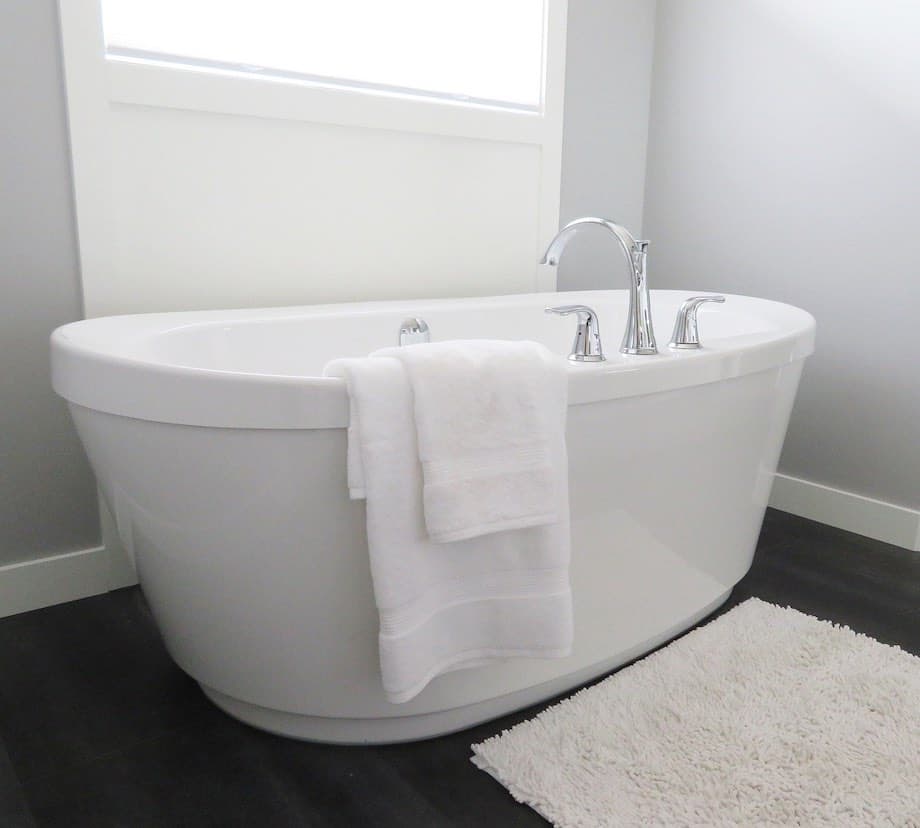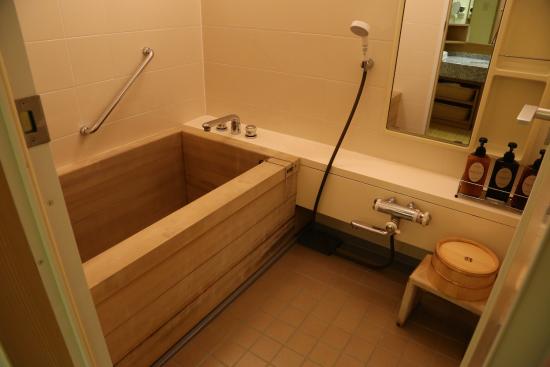
Taking a bath or shower at night is so much better than taking one in the morning.
Taking a bath at night is great because it gives you a chance to relax and ensures that you go to bed clean while maintaining a consistent bedtime routine. On top of this, bathing at night also helps you sleep better.
Most people take a bath in the morning because that is their routine and has been forever. For those people, they have likely never considered taking a shower at night.
Let’s talk about why it is so much better to have a bath at night.
Page Contents
Taking a Bath at Night is Better
As a parent, we always bath our daughter at night before she goes to bed. For a kid, especially after playing outside all day, a bath before bed makes sense. Often kids get all kinds of dirty while they play outside, they are also less worried about making a mess, so they have no problem rolling around in the dirt.
As adults, we don’t think about how dirty we are, so we don’t necessarily see the benefit of having a shower after being outside. This is how I thought, too, until my girlfriend (now wife) questioned one of my assumptions, which forced me to change my ways. When it comes to staying clean, you could say I am a neat freak as I always change my clothes when I get home from work. This makes sense when you live in the city, because the city is dirty, as there is lots of dust, grime and germs everywhere you go.
One day, my wife asked, “if you need to change your clothes when you get home from work, why are you ok with going to bed without a shower?” At first, I resisted this question, but as I thought about it, it made sense.
If the city is so dirty that I need to change my clothes, then I should shower before bed.
Most people might not agree with my compulsion to keep clean, which is ok. However, if you think about how dirty you could get at work, school or while out doing things, then having a shower a night makes sense.
For us, having a shower before bed means that the bed is always a clean place. Now, there is no doubt that we sweat at night, and that may make the bed a little dirty, but it is nothing compared to what we could drag in during a humid summer’s day.
Another benefit of taking a bath at night is that you get yourself into a routine that makes it easier to sleep. Doctors recommend that we don’t look at our screens before bed, so by having a bath or shower at night, you give yourself some time away from your screens before you get into bed. For myself, I also take some time to read before lying down and pulling up the covers.
that we don’t look at our screens before bed, so by having a bath or shower at night, you give yourself some time away from your screens before you get into bed. For myself, I also take some time to read before lying down and pulling up the covers.
Showering and reading a book before bed gives me lots of time to decompress without looking at a screen.
Adding to the idea of a routine, if every night you take a bath, get ready for bed and read a book, then you have a pretty good routine. Knowing the routine and keeping it will help you get into the mindset to go to sleep once you get into bed. For our daughter, we give her a bath every night, even if she doesn’t need it, because it is a part of her bedtime routine, and she knows it’s time to sleep at the end.
Another benefit of taking a bath at night is that it gives you a chance to relax and clear your mind before you sleep. For myself, shower time is a great time to reflect on my day and come up with some insights about what has happened.
Many people are familiar with shower thoughts, but these are more common at night because you have a day worth of experience to go through.
It would be difficult for me to quantify this, but I usually think of solutions to my work problems during my nightly showers.
Before my wife and I lived together, she lived in an apartment building that had a small hot water tank. This meant that if she tried to have a shower in the morning, there would never be any hot water left unless she woke up extra early. So if you are the only person taking a bath or shower at night, you will always have lots of hot water, whereas if you try to have a shower at the same time as everyone else, you might have a problem.
In Japan, Everyone Takes a Bath At Night
As I mentioned at the beginning, visiting Japan was a turning point for me and when I washed. The first time my wife slept over, she had a shower before bed; I thought it was strange and continued to shower in the morning. We kept up this mismatched routine until we visited her family in Japan.
We had been in Japan for a few days before we went to my wife’s brother’s house for a visit. Everyone talked for a while after dinner, and then they told me I should go take a bath first; this was a surprise as that wasn’t something that would happen in Canada. My wife led me to the bathroom, she opened the door, and I shrugged my shoulders. A Japanese bath was nothing like what we have in Canada.

 .
.She then explained, this is an ofuro (the Japanese word for bath); you sit on the bench and wash your hair and body. After you rinse, you take the cover off the tub and sit in the water until you are warm enough. Before she left, she repeated one piece of information, “it is important that you wash before you get in the bath because everyone uses the same bathwater.”
For anyone who hasn’t stayed with a family in Japan, this story might seem strange, but one thing to keep in mind is that most Japanese houses don’t have central heating.
This means that during the winter, it can get pretty cold in a bedroom, so having a bath at night warms you up and makes it easier to sleep.
For the same reason, during the summer, Japan can get very hot and humid, so having a bath cools you down and makes it easier to sleep.
Another popular activity in Japan is a visit to an onsen, which is typically translated as a spa, but it is more like a public ofuro. When you visit an onsen, you take your clothes off and go into a huge bathroom. There are typically many sitdown showers side by side and a couple of baths with different water temperatures. After you wash, you sit in one of the public baths for a while. My first visit to an onsen came with a lot of culture shock, but now I love them.
Every time we visit Japan, we have spent at least one night at a ryokan, a traditional Japanese hotel. Along with a room where you sleep on the floor, you typically get a fancy meal and access to an onsen. When at a ryokan, I’m usually okay after an hour in the onsen, but my wife and the other Japanese people seem to spend hours in there.
The bath culture in Japan feels strange to foreigners like me when we first visit the country. But now that I’ve embraced it, it feels perfectly natural and is what I prefer.
Now, it is difficult for me to fall asleep without a shower because it is so much a part of my routine.
Baths at Night and Body Temperature
One important thing to keep in mind when taking a bath at night is body temperature. As our body calms down and gets ready for sleep, it tends to cool down; scientists suggest that increased body temperature at night is associated with insomnia and trouble sleeping.
that increased body temperature at night is associated with insomnia and trouble sleeping.
For this reason, you want to be sure to give yourself some time to cool down after taking your bath and before getting into bed.
As I mentioned earlier, I usually read a book after taking my bath, but the other night, I was so tired I tried to sleep right away. This was a huge mistake because I was so hot under the covers that I couldn’t fall asleep even though I was exhausted. For this reason, doctors suggest that you give yourself about 90 minutes to cool down after a shower before going to sleep.
that you give yourself about 90 minutes to cool down after a shower before going to sleep.
Interestingly, taking a shower and allowing yourself to cool down might help your body regulate its temperature better, thus making it easier to sleep. Either way, taking a bath at night has turned out to be a helpful and enjoyable habit to add to my routine.
Will you consider taking a shower at night?
